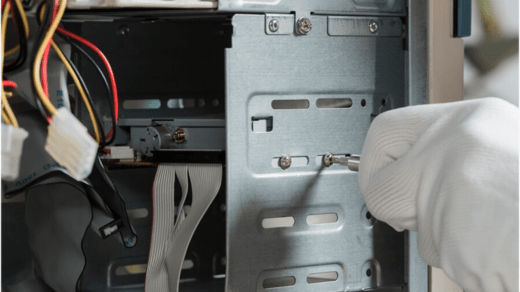Choosing the Right Backup Generator for Your Electrical Needs

In today’s fast-paced world, uninterrupted access to electricity is crucial for businesses of all sizes. Whether you run a small office or a large commercial facility, power outages can disrupt operations, leading to financial losses and inconvenience. That’s where backup generators come into play, offering a reliable solution to keep your business running smoothly during unexpected power disruptions. This article explores the essentials of selecting the right backup generator tailored to your commercial electrical needs.
Understanding the Importance of Backup Generators
Backup generators serve as a lifeline for businesses, providing continuous power supply during blackouts or electrical grid failures. For commercial establishments, such interruptions can impact productivity, data integrity, and customer satisfaction. Therefore, investing in a backup generator is not just a precautionary measure but a strategic decision to safeguard operations.
Types of Backup Generators
When considering backup generators, it’s essential to understand the different types available and their suitability for commercial applications. The two main types are:
1. Standby Generators:
Standby generators are permanently installed units that automatically kick in when the main power supply fails. They are designed to provide seamless transition and can power an entire building or specific circuits depending on their capacity. These generators are ideal for large commercial spaces requiring continuous power.
Standby generators are often powered by natural gas or propane, ensuring a steady fuel supply during emergencies. They are equipped with automatic transfer switches (ATS) that detect power outages and activate the generator within seconds, minimizing downtime.
2. Portable Generators:
Portable generators are versatile units that can be moved to different locations as needed. They are typically smaller and less expensive than standby generators, making them suitable for smaller businesses or temporary power needs.
Portable generators run on gasoline or diesel and require manual operation, including fuel refills and startup. While they provide flexibility, they may not offer the same level of automation and power output as standby generators.
Selecting the Right Size Generator
Choosing the right size generator is critical to meeting your commercial electricity needs without overspending on capacity. Follow these steps to determine the appropriate generator size:
1. Conduct a Load Analysis:
Perform a comprehensive load analysis by listing all essential electrical devices and their power requirements. Include both startup (surge) and running (continuous) wattages to accurately size the generator.
Use a load calculation worksheet or consult with a qualified electrician to ensure accuracy and reliability in estimating power demands.
2. Consider Future Growth:
Anticipate future growth and technological advancements that may increase your power requirements. Select a generator with sufficient capacity to accommodate expansion without compromising performance or efficiency.
Investing in a slightly larger generator now can prevent costly upgrades or replacements in the future as your business expands.
Ensuring Safety and Compliance
Safety is paramount when installing and operating backup generators in commercial settings. Follow these guidelines to ensure safety and compliance:
1. Installation by Professionals:
Hire licensed electricians and technicians experienced in commercial electrical services to install and maintain your backup generator. Proper installation ensures compliance with local building codes, safety regulations, and manufacturer specifications.
Professional installation also includes integrating automatic transfer switches (ATS) and conducting load testing to verify the generator’s performance under simulated outage conditions.
2. Regular Maintenance:
Implement a routine maintenance schedule to keep your generator in optimal condition. Perform inspections, fluid checks, and load tests according to manufacturer recommendations to identify and address potential issues before they escalate.
Keep records of maintenance activities and service history to track performance and ensure warranty compliance.
Conclusion
Choosing the right backup generator for your commercial electrical needs requires careful consideration of power requirements, fuel sources, and operational reliability. By selecting a generator tailored to your business size and operational demands, you can mitigate the impact of power outages and maintain continuity in critical operations.




